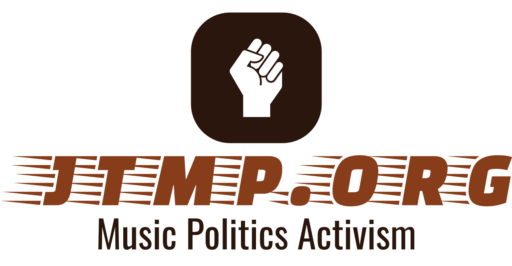
Tunisian rapper Hamada Ben Amor — known as "El General"
MSNBC World Blog: How rap music fueled the Arab Springs uprisings
by Karl Bostic, NBC News
"A bazaar in Libya's rebel capital of Benghazi might not appear to be the most obvious place to find a would-be Jay-Z.
But 18-year-old Boge and many others like him are pushing the boundaries of freedom of expression across the Middle East. The rappers have even been credited with helping to spark the so-called Arab Spring uprisings that deposed three long-serving dictators and rocked several other regimes.
Boge, who says he learned English from rap, is following in the footsteps of his hip-hop heroes KRS-One, Nas and Ice Cube.
"Our families are dying but yeah we're still tough, Gadhafi is trying to assassinate us," he rhymes during an impromptu performance amid vendors selling flags, shirts and hats in revolutionary colors at a market in the eastern Libyan city where the revolt against Moammar Gadhafi began."
Read the rest of the MSNBC article here.....
Visit msnbc.com for breaking news, world news, and news about the economy

Nigerian musician and activist Bayo Ade has been killed by kidnappers, a country that has been recently plagued with a rash of kidnappings. The kidnappers, who initially demanded ransom money and received it, still murdered the musician. His father, Pa Ukpenyen, collapsed and died upon hearing the news of the death of his son, doubling the tragedy to his family and friends.
Family, friends, and sympathizers took to the streets in a peaceful protest to call for Nigerian authorities to stop the recent violence and kidnappings that have been plaguing Benin. Edo State Commissioner of police David Omojola announced there are two suspects in custody.
Read our JTMP press release HERE, and read more on Nigeria News here, and below is a music video of his song, "Amebo".

(Egyptian musician Ramy Essam - Photo credit Michael Chavez - LA Times)
MUSIC AND THE ARAB SPRING
Protest music is playing a huge role in the Arab Spring of 2011, with many artists using their music to speak out against brutal regimes and injustice, and galvanizing the people in city squares. In Tunisia, where many believe was the "spark" of the 2011 freedom movement in the Mideast, Amel Mathlouthi sang "I Am Free, My Word is Free" in Tunis, giving a voice to the oppressed. When protesters gathered in Tahrir Square in Egypt as they brought down the Mubarak regime, the musicians Mohammed Mounir and Ramy Essam sang songs calling for Mubarak to step down. Mounir energized the crowd with his song "Ezzay" (How Come?), and Essam sang his song "Erhal" (Leave!) to the crowd in Tahrir Square, and both songs played a big part in the activist movement in Egypt.
Sout Al Horeya's "Voice of Freedom" has over 1 million views, and has almost become an anthem for the freedom movement. The Iranian student freedom song "Yar-e-Dabestani e-man" has been used as a rallying cry, including updated versions. In Syria, protest music is also playing a big role, even speaking out against the brutal attack on the poet Ali Ferzat.
JTMP has picked out the Top 5 Arab Spring Protest Songs:
Lady Gaga won the "Best Video With a Message" award at the 2011 MTV Video Music Awards show on Sunday for her song "Born This Way", a song that speaks about the issue of civil rights for the LGBT community. The award was created to recognize artists that delve into social issues that are relevant and important to today's youth, and gay rights is one of the top issues. The other artists nominated also spoke out about domestic abuse, female empowerment, and even everyday bullying.

From WNYC.org:
Marlon Bishop - WNYC Culture Producer
Libyan-American hip-hop artist Khaled M is celebrating the news that rebel forces have entered Tripoli with new music. For a few months, the rapper has been recording his first music video, an upbeat song titled “Lights Out.” But he decided that it wasn’t appropriate to release feel-good music until Libyan Col. Moammar Gadhafi was out of power.
“Hopefully we’ll put this out in two weeks, when he’s really gone” said Khaled.
Khaled was raised in the Libyan dissident community based in Lexington, Kentucky, home of an anti-Gadhafi group called the National Front for the Salvation of Libya. His father was one of the founders of that group, and according to Khaled, was tortured for five years by the regime for opposing the government. Khaled spent the first years of his life on the run, using false identities and traveling from country to country.
Popular
© 2023 Justice Through Music. All Rights Reserved.
